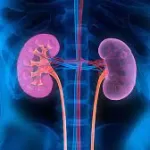A recent study published in the journal BMC Medicine has revealed a concerning link between the daily consumption of ultra-processed foods (UPFs) and an increased risk of depressive symptoms in older adults. Researchers found that consuming four or more servings of UPFs per day was associated with a 10% higher risk of depression and a noticeable decline in mental health-related quality of life.
The study, which examined data from 11,192 Australian adults aged 70 and above, highlights the growing concern about the impact of modern diets on mental well-being. UPFs, which include items like ready-to-eat meals, sugary beverages, and processed meats, are increasingly prevalent in global diets.
Researchers utilized the Nova classification system to define UPFs, focusing on industrially processed foods high in additives, fats, and sugars. They applied a target trial framework to analyze the impact of UPF consumption on mental health, using the Center for Epidemiological Studies Depression (CES-D-10) scale to measure depressive symptoms.
The study revealed that participants consuming four or more servings of UPFs daily were more likely to experience depressive symptoms compared to those consuming fewer servings. Furthermore, a statistically significant, though modest, decline in mental health scores was observed in the high-UPF group.
“Our findings suggest a potential link between high consumption of ultra-processed foods and increased risk of depressive symptoms in older adults,” stated the researchers. They posited that UPFs might disrupt the gut-brain axis and contribute to oxidative stress and inflammation, impacting mood regulation.
The study also found that high UPF intake was also linked to lower mental health scores. In subgroup analyses, stronger associations were noted for female participants, those with a higher body mass index, people without multimorbidities, and individuals with lower education.
While the study employed rigorous statistical methods to mitigate biases, the researchers acknowledged limitations, including potential recall bias and the lack of assessment of dietary changes over time. They also noted that while the decline in mental health scores was statistically significant, its clinical significance requires further investigation.
“These findings warrant further investigations into improving mental health outcomes through dietary improvement interventions,” the authors concluded.
Disclaimer: It is important to note that this study demonstrates an association, not a direct causal relationship. Individual dietary needs and health conditions vary, and this information should not be used as a substitute for professional medical advice. Consult with a healthcare provider or registered dietitian before making significant changes to your diet. Further research is needed to fully understand the long-term effects of ultra-processed food consumption on mental health.(
- The risk associated with ultra-processed food intake on depressive symptoms and mental health in older adults: a target trial emulation. Mengist, B., Lotfaliany, M., Pasco, J.A., Agustini, B., Berk, M., Forbes, M., Lane, M.M., Orchard, S.G., Ryan, J., Owen, A.J., Woods, R.L., McNeil, J.J., Mohebbi, M. BMC Medicine (2025). DOI: 10.1186/s12916-025-04002-4 https://bmcmedicine.biomedcentral.com/articles/10.1186/s12916-025-04002-4)












